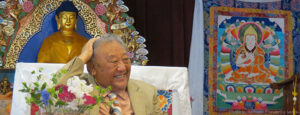1)You have fewer enemies. Because you are not going to offend so many people, there will be far fewer people who dislike you and you will get along well with a lot more people.
2)You maintain friendships. If you are not touchy, then your friends will remain friends. If you behave as a touchy person, your friends will become enemies. One of the disadvantages is that we sometimes even get upset when someone is looking at us in the wrong way. We say, “The way she is looking at me, I can tell what she has in mind, it is a clear indication she dislikes me.” We go to that extent, so we lose the friends that we have. We unnecessarily make them an enemy because of some word we cannot tolerate, some interferences we cannot tolerate, the way they look at us we cannot tolerate. And when that ‘can’t tolerate’ goes on, you lose your friends. When you have tolerance, your friends will remain as friends.
3)You have more joy and mental peace. If you have the power of anger, you will offend more people. In the usual American way you will say, “So and so doesn’t like me much.” In that manner you already created a little cloud over that person. That is our mental projection. So there is already some kind of un-smoothness within our mind, created by ourselves, by our projection, on the basis of that individual.
4)You have less regret. Much less regret.
5)You die in peace. By remaining in peace even after death, you can take rebirth in the samsaric gods’ realm. I am not talking about out of samsara, but by simple human behavior you can die in peace and thereby take a better rebirth.
These are the brief listings of the benefits in Tsongkhapa’s “Lamrim Chungba.” To prove them, he goes into a short sutra:
One of the best practices to help other beings is patience.
All good things in the world are protected by patience rather than by anger.
If you have the third paramita within you and you have some kind of material, economic or political power, this is one of your best ornaments.
If you are a practitioner this is one of the best [qualities] for the difficult tasks you have to do.
This is the water which will kill the fire of anger. All problems of yourself and others can be solved by patience.
If you are a respectable, good person and you wear the armament of this paramita, patience, all the arrows of the world that other people shoot at you, will not get to you.
All arrows that are shot at you by the words of others, will become flowers to you.
As I told you: people will hurt you, but don’t let them get you. It is true: no matter if an angry person keeps on shouting at a person who can stand it, using the hardest, most sensitive button – from his point of view it is an arrow – but if you are able not to let it get you, for you the arrow becomes transformed into a flower, because an observing person will say, “Wow, that person can really take it, he is great!”
If it doesn’t matter how much is coming from that side, hitting and shooting at you, and you are just sitting there and taking it, it has become a praise and it is almost like a flower- garland offered. The words were meant to hit you, but you were able to protect yourself. That is called: transforming the arrow into flowers. I always tell the Ram Dass story here. He said his brother-in-law was accusing him all the time on a Jewish feast and because of the effect of drugs, he could see the arrows coming from the mouth of that person fall on the table. The actual reality was: it was not getting at him. Tsongkhapa says,
“The most beautiful artwork one can produce on the spiritual path is patience.”
The idea here is to think about it and meditate. The purpose of the meditation is: to influence your mind. Influencing your mind means that your mind becomes like that. Then there is some kind of influence and whenever the problem arises, you’ll be able to take it and you’ll be able to apply [patience].
When you are meditating in your own little room, nobody is going to insult you, nobody is going to shoot arrows at you, so there is no problem; it looks great. But the moment you are dealing with people, people will hit you back. Because they are human beings, they also have emotional problems, they also have their ups and downs, as much as I get hurt they get hurt too, so they react. The practice here is not trying to clear them out, but to clear yourself out!
~ Gelek Rimpoche, The Six Perfections, 2013, p. 42-43



